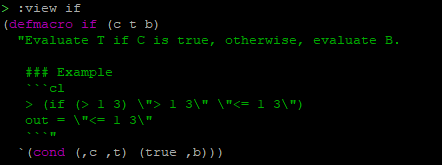Version 0.5.1 released
We’ve just released another Urn update - 0.5.1. This is a relatively small update, mostly composed of bug fixes and performance improvements. That’s not to say there aren’t some useful new features though!
REPL improvements
The Urn REPL is a great tool for testing and prototyping code. It’s something we regularly use, and so are always eager to improve it.
One task we often find ourselves doing is loading up the REPL, importing a module and testing a small feature in
it. This process has now been streamlined: when using the --repl flag, any file provided on the command line will be
automatically imported into the current scope.
We’ve also added a :view command, which allows you to preview a symbol’s definition. This saves you switching between
source code and the REPL, trying to remember how you got that awesome feature to work.

Optimised optimiser
The Urn compiler has never been the fastest beast, with the optimiser being the worst offender. Whilst the optimiser is great at reducing the size (and speed) of generated code, it also takes considerable time to run. Even worse, much of the optimiser’s time was just spent in iterating over every node - not even running the various passes! Something had to be done.
Urn 0.5.1 introduces a new framework for optimisations, doing something so obvious I’m surprised we weren’t doing it from the start. Instead of running each pass sequentially, we have one unified visitor object which will call each pass for every node it hits. Not only does this substantially reduce the visitor overhead, it reduces the number of times we have to run a pass, resulting it in an even bigger performance increase! We’ve also made some improvements to definition and usage tracking, which ensures that the information is more up-to-date, and so the optimiser can make smarter decisions.
These various improvements have resulted in a 2-3x performance increase in the optimiser (depending on Lua version and implementation). In fact, it now takes less time to optimise the compiler than it does to load it. There is evidently room for performance improvements elsewhere!
